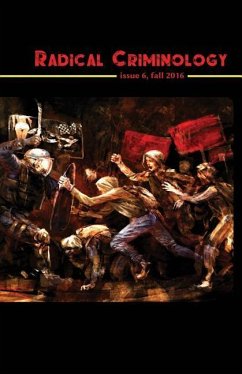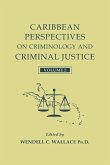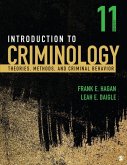Radical Criminology, edited by Jeff Shantz [Kwantlen Polytechnic University, Vancouver, British Columbia], is dedicated to bridging the gap between the academy and the global activist community, especially with regard to state violence, state-corporate crime, the growth of surveillance regimes, and the prison-industrial complex. More pointedly, the journal aims to be not simply a project of critique, but is also geared toward a praxis of struggle, insurgence, and practical resistance. Issue 6 (Autumn 2016) is a special issue on "Insurgent Criminology in a Period of Open Social War" edited by Jeff Shantz. The struggles of the present period are stripping the cover off of policing as military institutions for social war waged against the working class-especially the racialized and poorest sectors-in defense of statist management, capitalist ownership, and wealth accumulation. The police are increasingly revealed as agents of pacification and regulation (as they have always been) rather than of public safety or security. Yet, there is an insurgent criminology-lively, engaged, informed, vital, analytical, honest, brave-emerging not in the halls of the academy nor in the sessions of academic conferences but rather in the streets and neighborhoods of those who are targeted by the state for ongoing punishment, repression, and violence. That insurgency is bringing with it important critiques of criminal justice as well as the beginnings of compelling challenges and alternatives, moving through and beyond reformist demands. One of the most important and promising developments has been the posing and pondering of alternatives to policing and the raising of abolitionist perspectives, responses, and projects. These are the voices academic criminology must hear and must heed. And the movements they must support as active allies, even more as accomplices and public defenders.FEATURES: A Radical Grounding for Social Disorganization Theory: A Political Economic Investigation of the Causes of Poverty, Inequality and Crime in Urban Areas [Michael Lynch & Lyndsay N. Boggess]Coercive Occupations as State Facilitation: Understanding the U.S. State's Strategy of Control [Vince Montes]Squatting in Racialized Berlin 1975-2015: Vietnamese Transnational Subjectivity in a Climactic Double Division [Trangdai Glassey-Tranguyen]Social Control and Security in Times of Crisis: The Criminalization of the Seropositive Women in Greece [Maria Gkresta and Manuel Mireanu]Making Sense of Repression in Police Studies: Whither Theorizing in the Descent Toward Fascism [Tamari Kitossa]ARTWORKS: Selected Images and Commentary from ArtACT QC"All Eyes are Upon Us" (Poem) [Gene Grabiner]BOOK REVIEWS: "Crashing the Party: Legacies and Lessons from the RNC 2000" by Kris Hermes [Reviewed by Irina Ceric]"Who Killed the Berkeley School? Struggles over Radical Criminology" by Herman & Julia Schwendinger [Reviewed by Aaron Philip]
Hinweis: Dieser Artikel kann nur an eine deutsche Lieferadresse ausgeliefert werden.
Hinweis: Dieser Artikel kann nur an eine deutsche Lieferadresse ausgeliefert werden.





![Understanding Statistics for the Social Sciences, Criminal Justice, and Criminology [with Access Code] [With Access Code] Understanding Statistics for the Social Sciences, Criminal Justice, and Criminology [with Access Code] [With Access Code]](https://bilder.buecher.de/produkte/34/34664/34664240m.jpg)


